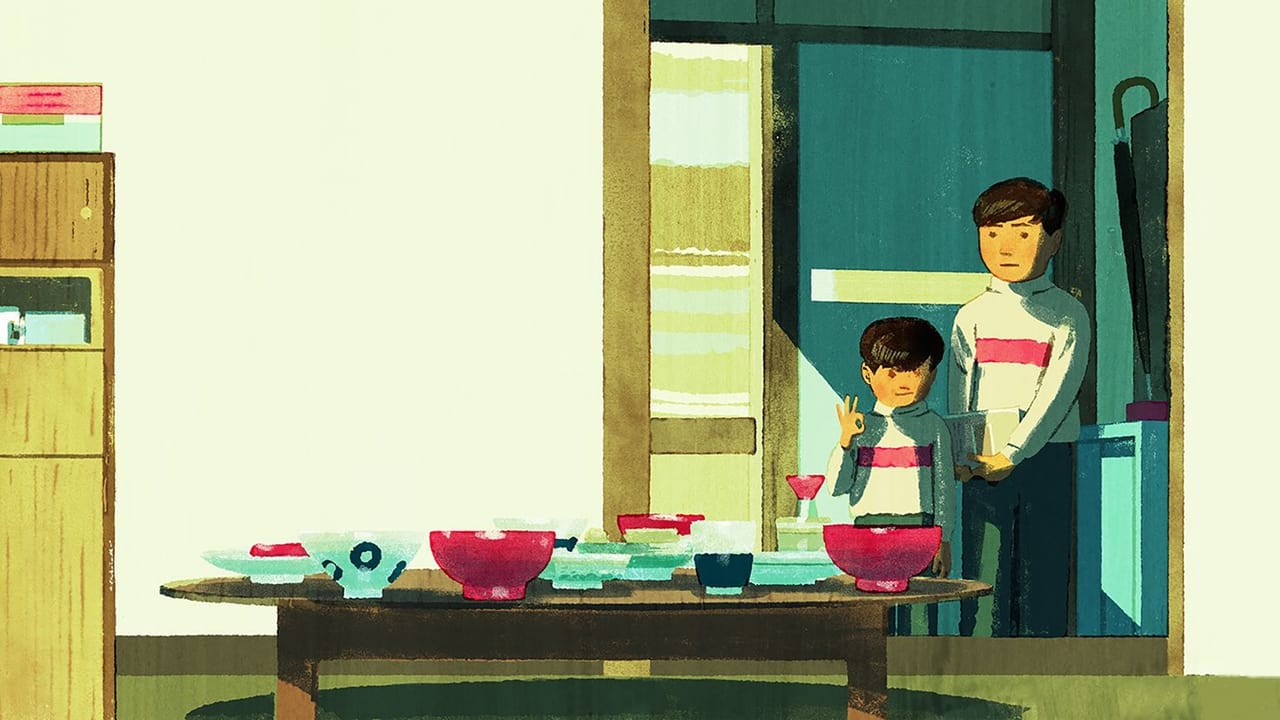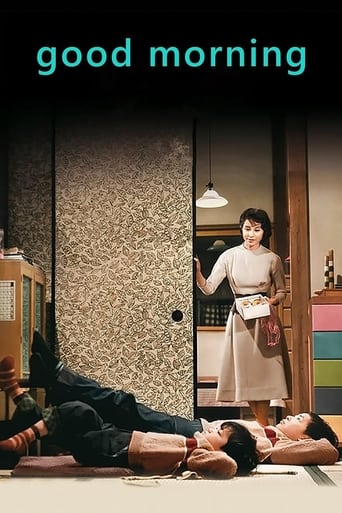

I agree with a former submitter here, it is the, "skimpiest of plots" with "two young brothers taking a vow of silence until their parents buy them a television." Yet - it is mainly the subject of language, attentiveness, and intelligence. It is subtly beautiful with each shot is perfectly framed with an excellent use of depth that highlights exactly what the director wants you to see and giving you plenty of space to focus and it is truly a fine introduction for younger viewers to the magnificence of international cinema. BUT - that being said .... it has the most horrible, blatant, ridiculous message screaming at the viewer: "HEY! Let's be rude, impolite, spoiled and bully our parents until we get what we want!" No thanks. I was nearly 10 years old when this movie came out in 1960 and even then I KNEW acting like this was so wrong. Then, as now, if children acted like the two brothers in this movie - HELLO MILITARY SCHOOL!
... View MoreOne of Japanese master Yasujiro Ozu's latter movies (and among his few color films). In a Japanese suburb in the late 1950s, two Japanese tykes (one about 10 years old, the other about 6) decide not to talk to anybody any more until their parents buy them a television set (this film was made in an era where many people in Japan were buying their first TVs).Shot in his traditional transcendental style, this charming comedy shows a more modern Japan than in other Ozu films of that era (at the same time, the cultural attitudes the movie reflects make it very much a film of the fifties). This was probably one of the first movies made anywhere to deal with life in the suburbs - even if it is set in a very Japanese suburbia (all the houses are very close to each other and its residents constantly interact with each other. There is also constant gossiping around among the housewives). In many ways, Good Morning is a movie about the many changes brought by the modernization and Americanization of Japanese society after World War II, Surprisingly for an Ozu film, this has even a number of gags involving human flatulence.A triumph for Ozu, even if it is probably not as moving as Tokyo Story, Late Spring or Early Summer. The ensemble of actors certainly helps.
... View MoreOver the past several months, I've evolved into a full-blown devotee of the Japanese film director Yasujiro Ozu. Just when I was tiring of the phoniness, violence and excess of contemporary American movies, I discovered Ozu's quiet (but by no means boring) films and was deeply impressed by his insights into human emotion, family relationships and society.But while Ozu films like Late Spring and Tokyo Story are clearly masterpieces, Good Morning is not his usual fare. Unlike Ozu's weightier dramas, this film focuses a lot on seemingly trivial matters like suburban gossip and, believe it or not, schoolboy farting competitions. At first, I wasn't sure exactly what to think of Good Morning - the lack of a strong central plot and apparent silliness of the themes initially put me off somewhat.However, by the time I was done watching Good Morning, I realized that Ozu was even cleverer and more subtle than I had previously thought. You see, while Good Morning appears to be a light comedy on the surface, it actually has a lot of perceptive things to say about materialism, envy and the unfortunate superficiality of most human communication. (A major theme of the film is that people are good at saying trivial things to each other - such as the title phrase - but not good at saying emotional things that really matter.) So, this movie is definitely deeper than it appears to be at first glance. As a viewer, I could both chuckle immaturely at the fart jokes and appreciate the film's deeper social commentary at the same time. It's rare indeed to find a film that offers up both crass humor and spiritual insight, but Good Morning somehow pulls off that remarkable trick. Although there are better Ozu films than this one, Good Morning is another solid entry in his amazing body of work - and its unusual subject matter helps to disprove the somewhat silly stereotype that every Ozu film was about a distinguished father trying to marry off his daughter.
... View MoreLast year NHK (national broadcaster in Japan) were playing 2 Ozu movies a night and I tuned into this by accident.Maybe because I have lived in Japan for 10 years and was watching it in it's native language and could understand the subtle nuances in the day-to-day conversation, or maybe simply because I related to the children, having grown up in a household where getting things that you actually want was very rare - quite simply, this movie moved me tremendously, the final scene brought tears to my eyes just *remembering* it a week later.This movie is probably most effective for anybody who grew up in a poor household with parents who tried their best against all odds to keep their children happy.
... View More